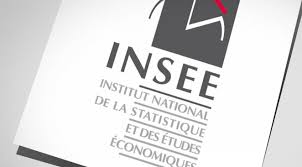Sure,
After Brexit, the election of Trump, the victory of the “no” in the referendum in Italy, a new period of uncertainties begins. With the risk that economic agents could succumb to a wait-and-see attitude whose consequences no one can yet really evaluate… But, uncertainties or not, France seems to be bogged down in a growth rate far from those it experienced before the European crisis at the beginning of the decade.
In 2015, even though the alignment of planets – euro, oil, interest rates – was more favorable than ever, French GDP growth did not exceed 1.2%. For a long time, economists – and even Bercy – believed that this favorable conjunction of factors would allow France to emerge with its head held high after the European turbulence… But none of the growth drivers have significantly picked up.
In its year-end economic report, published on Thursday, Insee announced that the French economy would not do better this year. After the downturn in the second quarter (GDP had then declined by 0.1%), Insee had already revised its growth forecast for 2016, from 1.6% to 1.3%.
This time, the institute lowers it to 1.2%, considering that agricultural production has suffered in recent weeks from the weather. But the bad surprise this year certainly comes from foreign trade – which took 0.7 points off the growth – as France is still unable to regain market shares internationally.
According to the National Institute of Statistics again, a robust rebound is not expected for early 2017. Growth could increase by 0.3% in the first quarter, then by 0.4% in the second.
To achieve 1.5% growth next year – a figure included in Bercy’s budget scenario – a clear acceleration in the second half of the year would be needed, of 0.6% each quarter. However, there is currently no sign of what could trigger it…
Certainly, exports should pick up in the first half of the year, “both to meet the demand of eurozone partners and due to once again dynamic aeronautical deliveries,” notes Insee.
As for business investment, it would regain some color after a disappointing end to 2016. Household consumption expenditures would increase by 0.3% in each of the first two quarters of 2017.
And their housing purchases would continue the rise started this year (+0.6% per quarter). As a result, these figures lead Finance Minister Michel Sapin to say that “all engines are running.”
But the context is no longer as favorable. OPEC and eleven producing countries have agreed to reduce their oil production in order to consolidate the recovery of prices. However, a rebound in oil means a rise in inflation.
A priori, this is good news for the European Central Bank (ECB), which has been striving, without much success, for two years to reach its target of 2% inflation with its very accommodative monetary policy. But, at the same time, no salary reevaluation has been set in motion.
In other words, the rise in prices will only bite into purchasing power and weaken domestic demand, resulting in lower demand and reduced activity for companies focused on their domestic market.
The rise in oil prices will also erode corporate margins. And it will have repercussions on industry, especially in sectors such as chemicals, exposed to competition from countries like the United States where the cost of energy is lower. Moreover, companies and households – not to mention the state – will have to cope with the slight rise in interest rates.
As a good piece of news amid this mixed picture, private sector employment would continue to “progress solidly by mid-2017, still supported by mechanisms aimed at enriching growth with jobs” (such as the SME hiring bonus, the responsibility pact…), notes Insee.
Taking non-market branches into account, total employment would grow faster than the active population and the unemployment rate would slightly decrease again, reaching 9.8% in mid-2017 in France, compared to 10% in the summer of 2016.


